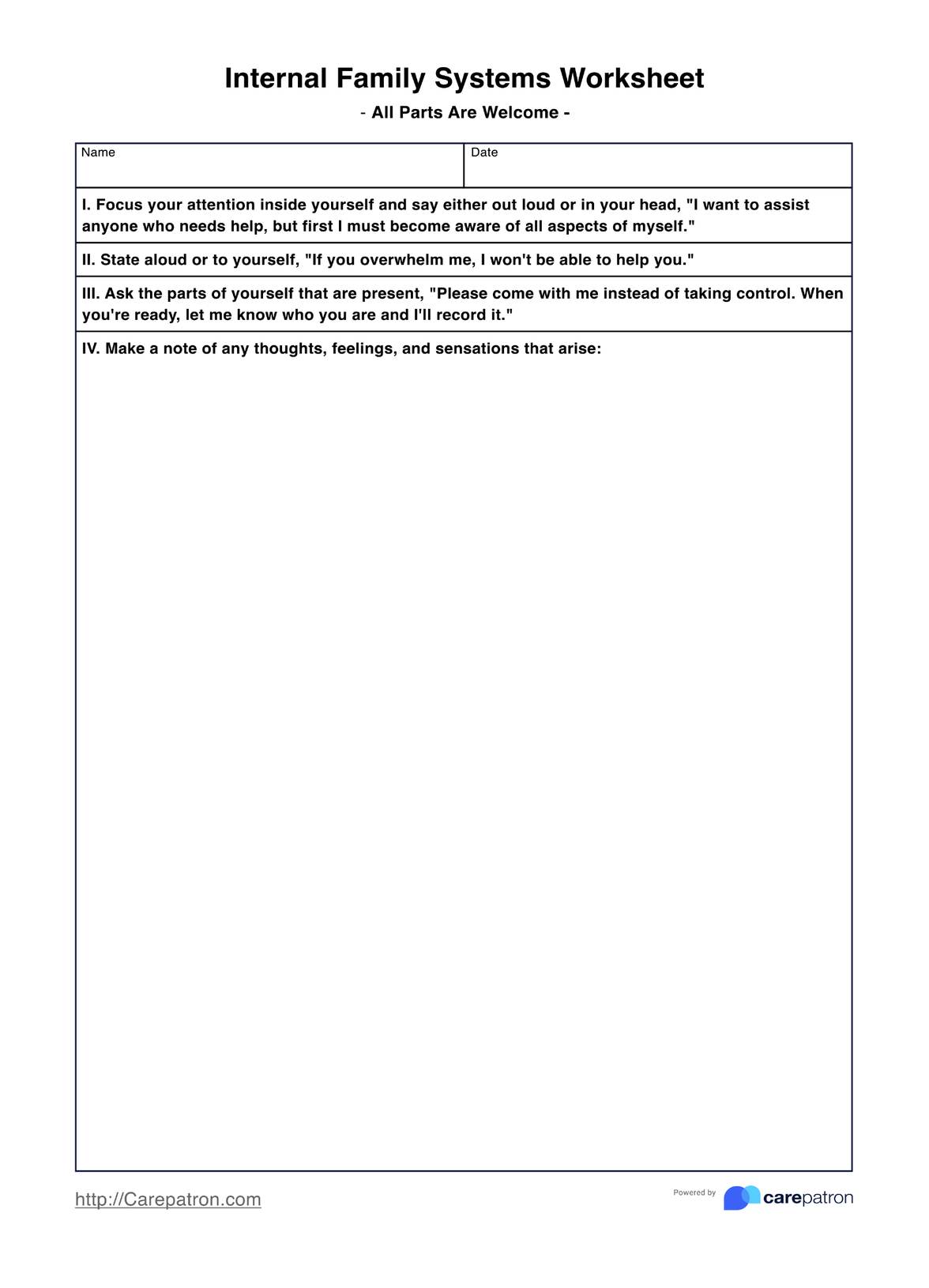Yes, it is possible to do IFS therapy on oneself. Through self-reflection and exploration of the inner parts of one's psyche, a person can use IFS techniques to help resolve internal conflicts and gain insight into their own motivations. However, it is recommended that you seek the help of a qualified therapist to ensure you are using the therapy correctly and safely.

Internal Family Systems Worksheets
An Internal Family Systems Worksheet that facilitates welcoming all parts of yourself.
Internal Family Systems Worksheets Template
Commonly asked questions
While certification is available to those who wish to become certified IFS practitioners, it is not mandatory to practice IFS. It’s possible for someone without formal training or certification to learn about and practice basic IFS concepts as a self-help tool. This could involve studying books, articles, podcasts, or videos about IFS; attending workshops or seminars led by experienced trainers; engaging in supervised individual sessions with an experienced practitioner; joining online discussion groups with other people interested in learning more about the model; and participating in experiential activities such as role-playing exercises or guided meditations. Those looking for a deeper dive into the theory and methodology behind Internal Family Systems can pursue professional training courses leading up to full certification from the Center for Self Leadership (CSL).
Internal Family Systems Worksheets are typically used by therapists and counselors to help their clients identify different parts of themselves. The client is responsible for filling out the worksheet, which involves writing down thoughts, feelings, and experiences related to the person's inner family dynamics. The therapist can then use this information to assess how well each part is functioning and provide guidance on how to better support them.
EHR and practice management software
Get started for free
*No credit card required
Free
$0/usd
Unlimited clients
Telehealth
1GB of storage
Client portal text
Automated billing and online payments











